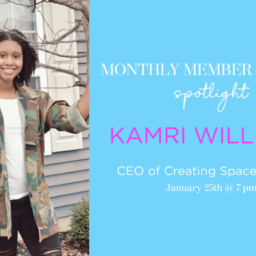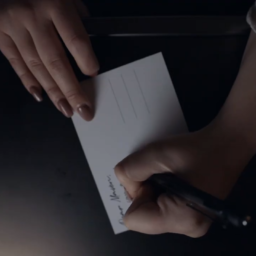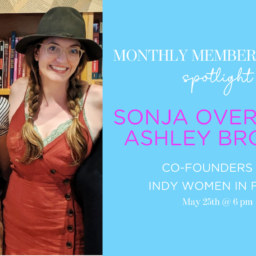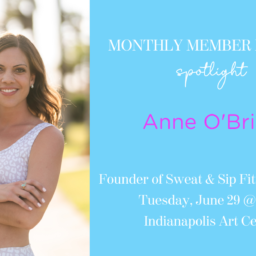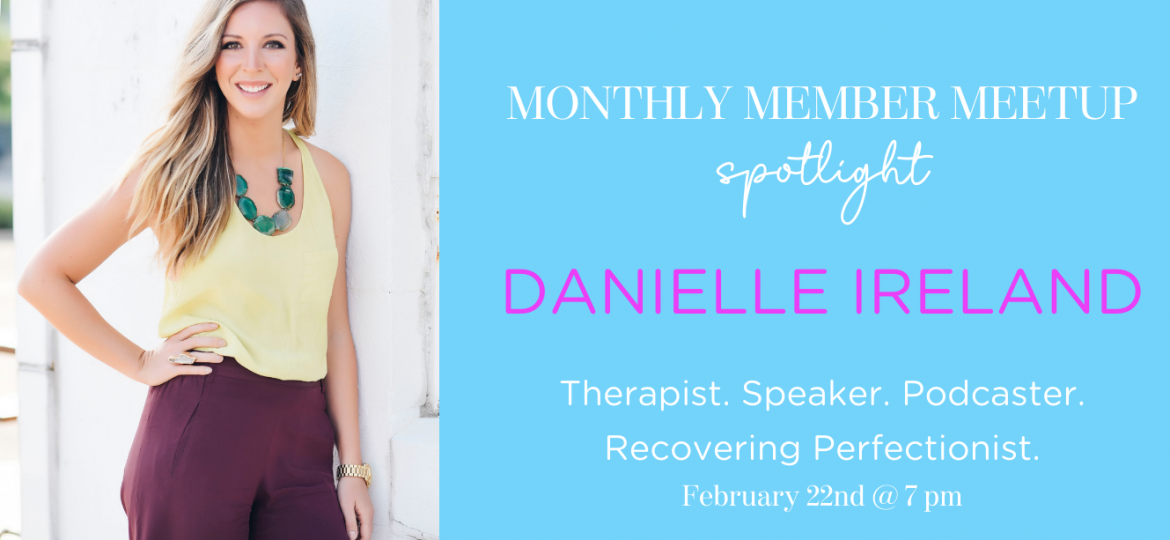
Though she is now a business owner, podcast host, and soon-to-be mom, Danielle Ireland’s path to success wasn’t a straight line—and she isn’t shy about sharing that. After time in the performing arts and fashion industries, Ireland found her way to her career as a therapist, where she now helps other women trust and believe in themselves.
We caught up with Danielle to learn more about her and what she plans to share with the Maven community at the February 22 Indy Maven Member Meetup.
What made you decide to be a therapist?
My background originally was in performing arts. I was a theater major in undergrad and I thought for sure that was what my life was going to be. Then, when I graduated and was making plans to move to LA, I had what I would call a “quarter-life crisis.” I realized “the plan” I was setting in motion—the reality of uprooting my life and moving to the West Coast wasn’t the right fit. I came home and did the thing I dreaded doing most: moved back in with my parents. I felt totally worthless and stuck. My journey with mental health began when I started experiencing my own version of pain and breakdowns and was on the journey to healing.
I applied to work at a ballroom dance studio and realized that I could make a living teaching people how to dance—and I dove head-first into this world for seven years. There were things I loved about it, but I got to a point where I didn’t feel stretched or challenged. I’ve started listening to realize if I dread getting up in the morning, that’s like a little emotional knock. Usually, my process is that I recognize it, ignore it, and avoid it, and then it knocks loud enough until I start to pay attention.
I started to transition by doing two or so years of a bunch of different jobs, looking for something on the outside to fulfill me on the inside. At one point, I was in fashion and thought I was going to have this The Devil Wears Prada moment, but I realized quickly that wasn’t what I wanted. It was a lot of trial and error of trying things I thought I’d like and figuring out what lit me up inside. Each time I tried and it didn’t work, I felt worse and worse about myself. Knowing what I know now, I was probably going through a bout of depression, and I was definitely wrestling with shame. I felt like, “You are 28, 29, what are you going to do?” I was trying so hard to figure it out.
When I was trying and failing—which I don’t look at it as failure now—I would look back at the mess and assess what I enjoyed and I didn’t enjoy. It became clear that I love connecting with people and I’m a really good listener. I remember helping a woman in a fitting room and her saying, “I don’t know how to feel good in my body anymore. I don’t know if my husband wants to have sex with me after we’ve had three kids.” I’m here holding a shawl and saying, “Maybe this would be good?” I realized women felt comfortable to be vulnerable with me and when they were, something lit up inside of me.
Right around the time my husband and I were engaged to be married, it became clearer that this [therapy] might be the thing I want to do. I got the clarity, I got the awareness, and I was like, “Oh crap, now I have to do this thing.”
I was terrified to apply to grad school. I was so convinced I’d be rejected. It was this constant cycle of insight, anxiety, action, until I finally applied and was accepted. Each inch forward toward something I really wanted, the stakes felt higher. Each step of the process, I felt this fear like, “They’re gonna find you out. They’re going to discover that this was a big mistake.” After graduation, I got employed with a private practice here in Indy. I rushed through getting my clinical licensure and because I got a “late start,” and there were two things happening: family planning with the BS but also real biological clock factor and trying to make up for lost time because I discovered later in life what I wanted to do.
As of February of last year, I’m running my own practice. Now that I’m making my own path, I can cherry pick what I’ve loved about my previous jobs. It’s terrifying on one hand but also really amazing on the other. I can still rock some fashion if I want to, the performing aspect can be speaking at events like the Indy Maven one and speaking on my podcast. Each time I’ve moved forward, it’s been that same cycle with a different lesson, so sometimes I feel like a lot of the work that I do is like I’m working to tell my 25-year-old self to tell her that she was going to be okay and she was going to figure it out.
What sort of topics do you cover on your Don’t Cut Your Own Bangs podcast?
The tagline for the podcast is, “The remedy to comparison and thinking everyone has it figured out but you.” I started it as a sort of a creative outlet when I started my career as a therapist and was thinking, “Everyone knows what they’re doing, and I’m the only one that’s confused.”
They’re basically conversations that I would’ve been having with people at coffee shops. The first two seasons, I was seeking out people who built something on their own. Whether they were entrepreneurs, leaders, or coaches, I was looking for people who had built something. There’s something about a microphone and an interview that makes people go deeper faster and hit the hard stuff in a different way. I learned something from every single episode.
The last few years, I’ve been doing solo podcasts. Each step, I’ve been learning the technology and overcoming that narrative that says, “Technology’s hard. I’m not good at it.” It’s the same head trash that comes up over and over that says, “I want to do this, but it’s really hard.” It makes me avoid it but eventually come back to it.
What topics are you planning to cover at the Maven Monthly Member Meetup on February 22?
I’ll be covering boundaries. We’ll talk about how setting boundaries is more than just saying no—it’s loving yourself and treating yourself the way you want others to treat you. It’s one thing to know something you don’t like and another to act on that knowing. I think talking about boundaries has become more popular, and I think people need to know boundaries don’t necessarily have to be a “no” or a line in the sand. There’s sort of this finger-waggy feeling to boundaries where you have to tell someone they hurt you or they were wrong. That’s a type of boundary, but there is more to it than that. We’ll be exploring that.
What are some of the most common issues you see your clients or women in general facing today?
The thing women come to me most often for is anxiety. There’s a distinction between clinical, diagnosable anxiety and the experiential anxiety that is just part of being a human. I’m not only talking about clinical anxiety; I speak to women who are experiencing all levels of uncertainty, self-doubt, and self-criticism. So many women are Type A and high-performing who hold themselves to a high standard and often use working to stay busy and avoid issues. This last year, life has presented opportunities to confront issues they had previously been mothering, managing, or hustling their way through. Women will usually come in feeling confused, upset, angry and they don’t know why.
You obviously keep a busy schedule. How do you stay grounded and keep from associating your worth with productivity?
My ego says that I am what I do; I am what other people think of me; I am how valuable I am for others. Those thoughts drive unhealthy behaviors. These desires—to do good work, to be valued and be of service, and to be thought of well—are not inherently wrong or unhealthy. It’s just a teeter-totter of emotions. We want emotions to be a staircase so we can move up and leave all the BS behind, but it’s more like a teeter-totter that’s like, “Today I was good, but a few days ago I was dipping too far.”
To keep myself grounded, I do a lot of journaling, meditation, and breath work. That’s also why I sell journals; they’ve been so helpful for me and I like to help women organize their thoughts. Another thing I’ve been consistently doing is setting appointments with myself in my schedule that are blocks that I won’t book over or fill with other things. I’ve noticed that if I see an open space in my calendar that’s not filled and someone asks if I’m available, I say yes. Then, by the end of the week or month, my calendar is so full of things I wanted to do in the moment but when it comes time to actually do them, I am too burnt out.
If you could say one thing to women who are struggling with comparison, self-doubt, insecurity, etc., what would it be?
When women see something that makes them feel small or insecure and think, “This girl has amazing hair,” or, “Who has time to get washboard abs and do inversions on exotic beaches when we have lives to live,” I would encourage them to get curious rather than critical. Shame, judgement, or criticism can be directed outward where we think things like, “Must be nice to have all your sh*t paid for,” or inward when we look in the mirror. Instead of getting critical, get curious. If you can catch that voice that comes from your own brain, it can reveal things to you that you need to learn.
I was envious of people who owned their own business because what started out as comparison and jealousy helped me realize I wanted that type of freedom in my own life. If I had remained critical, saying, “That must be nice,” or, “They probably came from money,” all of that stuff—whether it’s true or isn’t—wouldn’t have been helpful. Instead of going down the criticism rabbit hole, add some compassionate curiosity and think, “What is the shift I can make in my own life?”
Do you have any advice for women who are thinking about going to therapy but are still on the fence?
Full disclosure: I didn’t start going to therapy until I was training to be a therapist. I was avoiding it because I was afraid of vulnerability. I wanted to be normal; I didn’t want anything to be wrong with me. We all want to be normal, but if every woman could see just a glimpse of all of the conversations I have everyday, they’d realize very quickly that there is no normal.
I don’t think therapy would hurt. I don’t know if everyone necessarily needs it. I think what we need is an unbiased advocate. That’s why therapy is helpful: They’re not your family member or friend, and they aren’t worried about asking questions that make you uncomfortable or hurt your feelings.
What I’ve found most helpful is feeling like I’m having a safe conversation with someone I trust. The less I try to act serious, the less people feel like they have to pretend and perform. I also would tell people to trust yourself and your instincts and just try it. If you’re not feeling comfortable after about two sessions, try someone else.
Anything else you’d like to share?
I think more than anything, my personal mission is to help women trust themselves more and trust their instincts more. That’s been one of the biggest sources of my healing. As opposed to feeling doubt or insecurity, a woman trusting her own voice helps everything else fall into place. She knows what to do.
To learn more about Danielle Ireland, visit https://danielleireland.com/.
The Maven Member Meetup series gives Indy Maven members the opportunity to connect, laugh, learn, and vent virtually (for now) on the last Monday evening of every month. Members: RSVP to the event here! Not yet a member? Become one so you can attend the monthly member meetups AND receive all the other awesome Indy Maven member perks!










